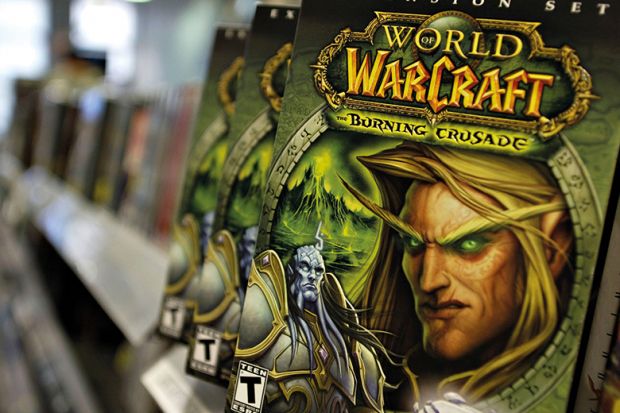After Brexit and the election of Donald Trump to the presidency of the US, the implausible is now possible. In such an age, an academic’s responsibility is to teach with rigour, clarity and excellence, and carry out research with potency, power and integrity.
In a tweet-led policy environment, researchers must not squeeze minced arguments into a sausage-meat monograph. The confusion between causality and correlation, anecdotes and evidence, undermines what university researchers can communicate to the citizens who fund our scholarship.
Adam Alter’s title, Irresistible: Why We Can’t Stop Checking, Scrolling, Clicking and Watching, seems straightforward. It is part of the Malcolm Gladwell/Chris Anderson school of thought, where a T-shirt slogan morphs into an evangelical commitment.
Turning from the title page to the book within reveals an argument that is startling in its naivety. Stating that “our understanding of addiction is too narrow”, Alter drowns in the “costs” of technology, digitisation, mobile phones, online pornography and gaming. He finds “addictive behaviours” in Facebook “likes”, texting and World of Warcraft.
This is a book of blame. Technology is at fault for workers neglecting their families. Alter states that “obsessive passions…are unhealthy and sometimes dangerous”. But what is obsessive? What is unhealthy? What is dangerous? There is no discussion of how work and families have transformed through digitisation. The decline of public libraries, public open space, public education and public health is unmentioned in favour of (too) easy arguments about individuals making poor consumer choices.
The lack of footnotes or in-text referencing means that, page after page, stories substitute for analysis. For example, Alter states: “There are people…who disagree with the idea that addictions can be purely behavioural.” Who are these “people” and why do they “disagree”? Such assumptions also feed into randomness. Alter compares binge-watching Breaking Bad on Netflix with the way that different national governments phrase requests for organ donation.
Generalisations are unavoidable. All interpretations reify complexity. But lazy generalisations damage research. Alter locates “the addict in all of us”, but all of us are not addicts. Generalising specific contexts, software, hardware and consumption practices undermines the intricate sociological, cultural studies and internet studies research that probes specific datasets.
The disconnection of work and leisure from digitisation creates confusion between media and motive. Alter asks: “How long do you think the average office email goes unread? I guessed ten minutes. The truth is just six seconds. In reality, 70 percent of office emails are read within six seconds of arriving.” How has this behaviour been longitudinally studied and generalised to all industries?
There is nothing in an email that summons a desire to answer it. Understanding the labour landscape described in Guy Standing’s The Precariat provides greater insight into email cultures at work than any theories of addiction.
When scholars are mentioned in Irresistible, their work is simplified. Alter declares that “Sherry Turkle has also argued that technology turns children into poor communicators”. In fact, Turkle’s career has probed screen culture with subtlety for 20 years, and that quoted sentence does not capture – even in relief – any of her monographs. Moreover, emerging scholarship, such as Oliver Smith and Thomas Raymen’s theorisation of deviant leisure, goes unmentioned here. Alter focuses on individual addictions, rather than social structures and media history.
There are many problems with this book. The stunning absence is its lack of attention to information literacy. Instead, digitisation is understood as a series of binaries: good and bad, off and on. Technology is a folk devil. And yes, Alter compares mobile phone usage to taking heroin.
The Trump presidency has welcomed an age of post-truth, alternative facts and a repression of expertise. There will be academic costs. When Alter concludes his book with the statement that “half of the developed world is addicted to something”, scholars become complicit in this age of ignorance, fear and terror.
Tara Brabazon is dean of graduate research and professor of cultural studies, Flinders University, Australia. She is author, most recently, of Play: A Theory of Learning and Change (2016).
Irresistible: Why We Can’t Stop Checking, Scrolling, Clicking and Watching
By Adam Alter
Bodley Head, 368pp, £18.99
ISBN 9781847923578
Published 2 March 2017
Register to continue
Why register?
- Registration is free and only takes a moment
- Once registered, you can read 3 articles a month
- Sign up for our newsletter
Subscribe
Or subscribe for unlimited access to:
- Unlimited access to news, views, insights & reviews
- Digital editions
- Digital access to THE’s university and college rankings analysis
Already registered or a current subscriber?




